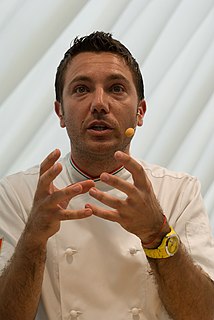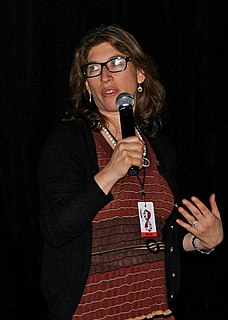A Quote by Madonna Ciccone
The worst thing about being famous? I think it's what everybody says.. the lack of privacy and the idea that you're not really allowed to make mistakes and everything that you do is viewed under a microscope.
Related Quotes
The thing is, everybody wants to be famous. Everybody wants to be successful. Everybody wants to be that dude, but not everybody wants to do the work for it. And I think that's probably one of the reasons why there's so many juniors and only a couple that make it. Because I really wanted it. I wanted it real bad.
But I think that Australians have a sort of independence, and I think that, rightly or wrongly, they tend to make their own decisions as to how a thing has gone. Pioneers are apt to be like that. I think that it's not a bad idea. You can listen to what everybody says, but the fact remains that you've got to get out there and do the thing yourself.
... I don't think anybody should avoid mistakes. If it is within their nature to make certain mistakes, I think they should make them, make the mistakes and find out what the cost of the mistake is, rather than to constantly keep avoiding it, and never really knowing exactly what the experience of it is, what the cost of it is, you know, and all the other facets of the mistake. I don't think that mistakes are that bad. I think that they should try and not do destructive things, but I don't think that a mistake is that serious a thing that one should be told what to do to avoid it.
[Bill] Binney will argue with you all day about ThinThread, but his idea was that it would collect everything about everybody but be immediately encrypted so no one could read it. Only a court could give intelligence officials the key to decrypt it. The idea was to find a kind of a compromise between [privacy rights and] the assertion that if you don't collect things as they happen, you won't have them later - because what the NSA really wants is the capability of retrospective investigation.
Now, I don't mean to say that being wrong is the same thing as being creative. What we do know is, if you're not prepared to be wrong, you'll never come up with anything original. If you're not prepared to be wrong. And by the time they get to be adults, most kids have lost that capacity. They have become frightened of being wrong. And we run our companies like this, by the way, we stigmatize mistakes. And we're now running national education systems where mistakes are the worst thing you can make.
That is the trouble with many inventors; they lack patience. They lack the willingness to work a thing out slowly and clearly and sharply in their mind, so that they can actually "feel it work." They want to try their first idea right off; and the result is they use up lots of money and lots of good material, only to find eventually that they are working in the wrong direction. We all make mistakes, and it is better to make them before we begin.
I've often looked at the extremes as a way to shed light on the mainstream. Even though everybody says, "Money doesn't buy you happiness," I don't think that that's the principle by which people live. If you talk to kids and ask them what they want to be when they grow up, they say, "Rich and famous," but being rich and famous is not a job.
But suppose one doesn't quite know which one wants to put first. Suppose," said Harriet, falling back on words which were not her own, "suppose one is cursed with both a heart and a brain?" "You can usually tell," said Miss de Vine, "by seeing what kind of mistakes you make. I'm quite sure that one never makes fundamental mistakes about the thing one really wants to do. Fundamental mistakes arise out of lack of genuine interest. In my opinion, that is.




































